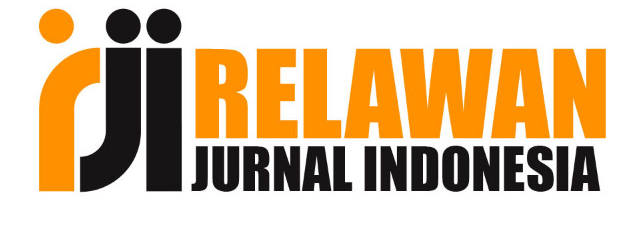Mapping; Ranah Affektif (Sikap) Wirausaha Mahasiswa Politeknik Swasta di Palembang
DOI:
https://doi.org/10.36982/jiegmk.v12i2.1899Abstract
This research is a descriptive study, which aims to investigate the entrepreneurial character of early-level students at the Private Polytechnic in Palembang. The method used to collect data was a sample aiming with the snowball technique. Respondents involved in this study were 203 respondents to fill in 18 questions in the questionnaire. Data analysis using descriptive statistical methods, determined the rank in each character with a comparison between the actual score and the ideal score. The results of this study indicate that of the 6 (six) entrepreneurial characters the calculation of the ideal ideal score is 50.65 (high). Where 4 (four) dominant characters, namely self-confidence, task and result-oriented, originality and future-oriented, while the other 2 (two) entrepreneurs, namely leadership and risk-taking, get a score criterion of 44.1% (moderate). The implication of this research is to provide information for the mapping of the entrepreneurship course curriculum providing information for practical and theoretical material that is in the semester learning plan.
Â
Keywords: Character, entrepreneurship, students
Â
Â
Â
References
Acs, Z. J., Audretsch, D. B., Braunerhjelm, P., & Carlsson, B. (2005). Growth and Entrepreneurship: An Empirial Assessment (No. 3205). Papers on Entrepreneurship, Growth and Public Policy.
Aprilianty, E. (2012). Pengaruh kepribadian wirausaha, pengetahuan kewirausahaan, dan lingkungan terhadap minat berwirausaha siswa SMK. Jurnal pendidikan vokasi, 2(3).
Ahu Tuğba Karabulut. 2016. Personality Traits on Entrepreneurial Intention. Procedia Social and Behavioral Sciences, 229, 12–21
Alma, Buchari. 2011.Kewirausahaan Untuk mahasiswa dan Umum.Bandung:Alfabeta.
Aqib, Zainal., Sujak. 2011. Panduan dan Aplikasi Pendidikan Karakter. Jakarta : Gaung Persada Press.
Bullough, A., Renko, M., & Myatt, T. (2014). Danger zone entrepreneurs: The importance of resilience and self–efficacy for entrepreneuria intentions. Entrepreneurship Theory and Practice, 38(3), 473-499.
Cunningham, J. B. and J. Lischeron. 1991. Defining entrepreneurship. Journal of Small Business Management. 29(1): 445–461.
Farrukh, M., Alzubi, Y., Shahzad, I. A., Waheed, A., & Kanwal, N. (2018). Entrepreneurial intentions: The role of personality traits in perspective of theory of planned behaviour. Asia Pacific Journal of Innovation and Entrepreneurship.
Gurol, Yonca and Atsan, Nurai, 2006, Entrepreneurial Characteristics Amongst University Student, Some Insight for Entrepreneurship Education and Training in Turkey,International Journal of Education andTraining, Vol. 48, no. 1,Emerald Group Publishing Limited
https://ekonomi.bisnis.com. Diakses tanggal 11 November 2020
https://www.bps.go.id. Diakses tanggal 11 November 2020
https://palembangkota.bps.go.id. Diakses tanggal 11 November 2020
https://pddikti.kemdikbud.go.id/. Diakses tanggal 20 Oktober 2020
https://www.usnews.com/media/best-countries/overall-rankings-2020.pdf. diakses tanggal 05 Januar 2021
Kurniawan, Agus. dkk. 2016. Pengaruh lingkungan keluarga, motivasi, dan kepribadian terhadap minat wirausaha Melalui self efficacy. Journal of Economic Education 5 (1)
McClelland, DC. 1965. Achievement motivation can be developed. Harvard Business
Mesach Hendri dkk. 2018. Pengaruh Sifat Kepribadian Terhadap Intensi Menjadi Wirausaha Dengan Efikasi Diri Sebagai Variabel Intervening (Studi Pada Mahasiswa Fakultas Ekonomika Dan Bisnis Universitas Diponegoro Semarang). Jurnal Studi Manajemen Organisasi 15 (2018) Desember 51 – 65
Rauch, A. and Frese, M. 2007. Let’s put the person back into entrepreneurship research: a meta-analysis on the relationship between business owners’ personality traits, business creation, and success. European Journal of Work and Organizational Psychology, Vol. 16 No. 4, pp. 353-85
Sekaran, Uma. 2013. Research Methods for Business. Jakarta: Salemba Empat
Shenglan Huang, Donghong Ding and Zhi Chen. 2014. Entrepreneurial Leadership and Performance in Chinese New Ventures: A Moderated Mediation Model of Exploratory Innovation, Exploitative Innovation and Environmental Dynamism. Creativity And Innovation Management, Vol. 23 Number 4 pp457-471
Sugiyono. 2008. Metode Penelitian Kuantitatif Kualitatif dan R&D. Bandung : ALFABETA
Sugiyono. 2012. Metode Penelitian Kuantitatif Kualitatif dan R&B. Bandung: Alfabeta
Zhao, H., Seibert, S.E. and Hills, G.E. 2005. The mediating role of self-efficacy in the development of entrepreneurial intentions, Journal of Applied Psychology, Vol. 90 No. 6, p. 1265
Zubaedi, 2011. Pendidikan Karakter Konsep dan Aplikasinya dalam lembaga Pendidikan. Jakarta; Kencana
Downloads
Published
How to Cite
Issue
Section
License
Authors retain copyright and grant the journal right of first publication with the work simultaneously licensed under a Creative Commons Attribution License that allows others to share the work with an acknowledgement of the work's authorship and initial publication in this journal.
Â
Authors are permitted and encouraged to post their work online (e.g., in institutional repositories or on their website) prior to and during the submission process, as it can lead to productive exchanges, as well as earlier and greater citation of published work.
Â
LP2M Indo Global Mandiri University has the right to multiply and distribute the article and every author is not allowed to publish the same article that has been published in this journal.










